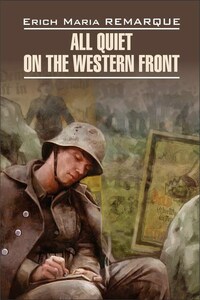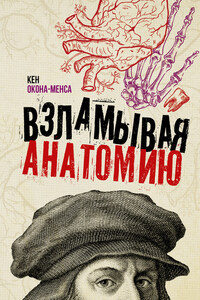We are in camp five miles behind the line. Yesterday our relief arrived; now our bellies are full of bully beef[2] and beans, we’ve had enough to eat and we’re well satisfied. We were even able to fill up a mess-tin for later, every one of us, and there are double rations of sausage and bread as well – that will keep us going. We haven’t had a stroke of luck[3] like this for ages; the cook-sergeant, the one with the ginger hair, is actually offering to dish out food, beckoning with his serving ladle to anyone who comes near him and giving him a massive helping. He’s getting a bit worried because he can’t see how he’s going to empty his cooking pot. Tjaden and Muller have dug out a couple of washing bowls from somewhere and got him to fill them up to the brim[4] as a reserve supply. Tjaden does things like that out of sheer greed[5]; with Muller it’s a precaution. Nobody knows where Tjaden puts it all. He’s as thin as a rake and he always has been.
The most important thing, though, is that there are double rations of tobacco as well. Ten cigars, twenty cigarettes and two plugs of chewing tobacco for everyone, and that’s a decent amount. I’ve swapped my chewing tobacco with Katczinsky for his cigarettes, and that gives me forty. You can last a day on that.
And on top of it all, we’re not really entitled to this lot. The army is never that good to us. We’ve only got it because of a mistake.
Fourteen days ago we were sent up the line as relief troops[6]. It was pretty quiet in our sector, and because of that the quartermaster drew the normal quantity of food for the day we were due back, and he catered for the full company of a hundred and fifty men. But then, on the very last day, we were taken by surprise by long-range shelling from the heavy artillery[7]. The English guns kept on pounding our position, so we lost a lot of men, and only eighty of us came back.
It was night-time when we came in, and the first thing we did was get our heads down so that we could get a good night’s sleep. Katczinsky is right when he says that the war wouldn’t be nearly as bad if we could only get more sleep. But there is no chance of that at the front, and two weeks for every spell in the line is a long time.
It was already midday when the first of us crawled out of the huts. Within half an hour every man had his mess-tin in his hand and we were fining up by the cookhouse, where there was a smell of proper food cooked in good fat. Needless to say, the hungriest were at the front of the queue: little Albert Kropp, who is the cleverest of us, and was the first one to make it to acting lance-corporal. Then Muller – one of the five boys called that at our school – who still lugs his textbooks about with him and dreams about taking his school leaving diploma later under the special regulations. He even swots up physics formulae when there is a barrage going on. Then Leer, who has a beard, and is obsessed with the girls from the officers-only knocking-shops[8]; he swears that they are obliged by army regulations to wear silk slips, and that they have to take a bath before entertaining any guest with the rank of captain or above. And fourthly me, Paul Baumer. All four of us are nineteen years old, and all four of us went straight out of the same class at school into the war.
Close behind us are our friends. Tjaden, a skinny locksmith who is the same age as us and the biggest glutton in the company. He’s thin when he sits down to eat and when he gets up again he’s got a pot-belly; Haie Westhus, the same age, a peat-digger, who can quite easily hold an army-issue loaf in one great paw and ask, ‘Guess what I’ve got in my hand?’; Detering, a farmer, who thinks about nothing but his bit of land and his wife; and finally Stanislaus Katczinsky, leader of our group, tough, crafty, shrewd, forty years old, with an earthy face, blue eyes, sloping shoulders and an amazing nose[9] for trouble, good food and cushy jobs[10].
Our group was at the head of the grub queue[11]. We were getting impatient, because the cook-sergeant didn’t know what was going on and was still standing there waiting.
In the end Katczinsky shouted to him, ‘Come on, mate, open up your soup kitchen[12]! Anyone can see the beans are done!’
But he just shook his head dozily. ‘You’ve all got to be here first.’
Tjaden grinned. ‘We are all here.’
The cook-sergeant still didn’t get it. ‘That would suit you nicely, wouldn’t it. Come on, where are the rest?’
‘They won’t be getting served by you today. It’s either a field hospital or a mass grave for them.’
The cook was pretty shaken when he heard what had happened. He wasn’t so sure of himself any more. ‘But I cooked for a hundred and fifty men.’
Kropp elbowed him in the ribs. ‘So for once we’ll get enough to eat. Right, get on with it!’
Suddenly a light dawned in Tjaden’s eyes. His pointed, mouselike face positively glowed, his eyes narrowed with cunning, his cheeks twitched and he moved in closer. ‘Bloody hell














